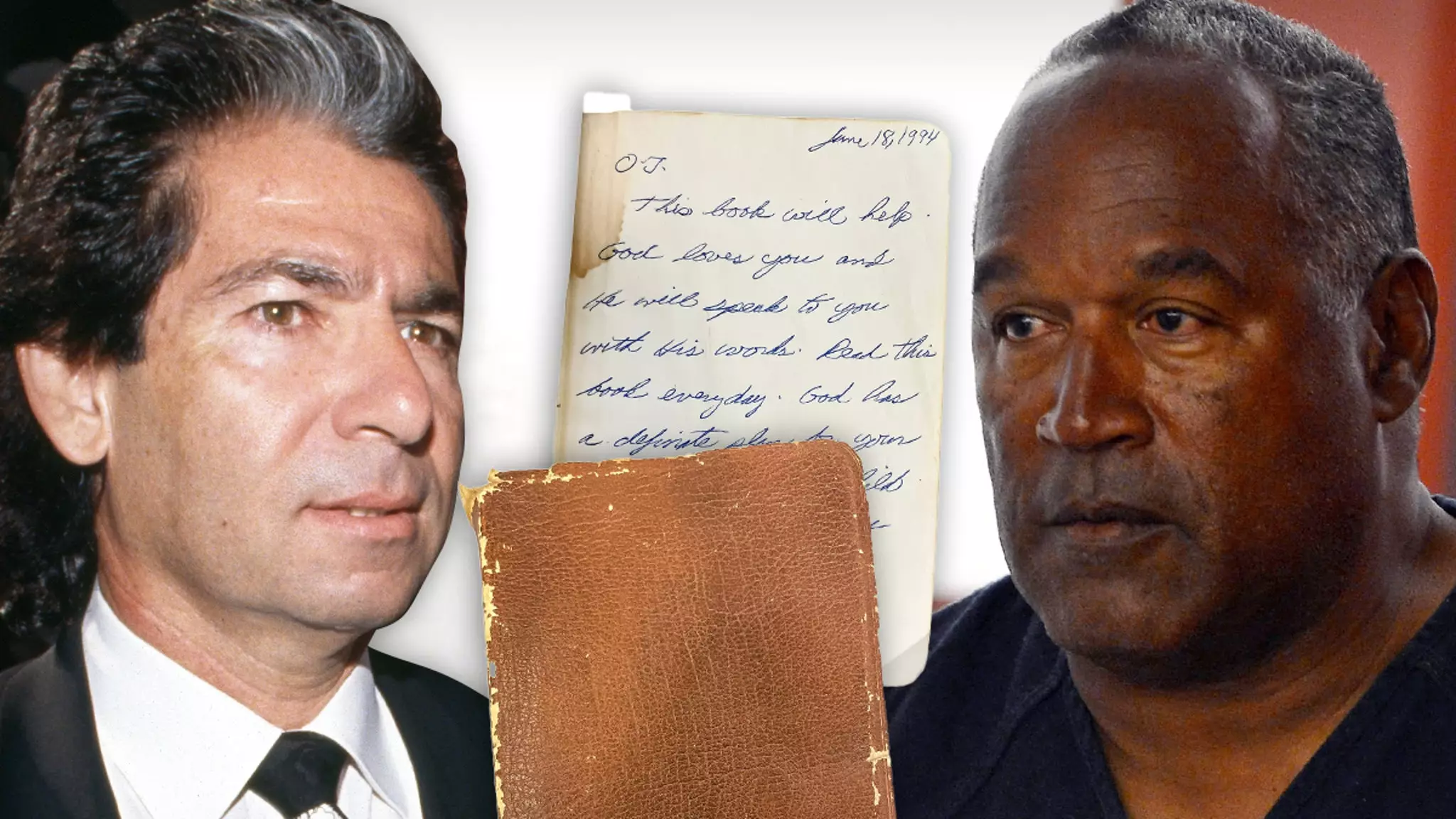The recent auction of Robert Kardashian’s signed and inscribed Bible has unwrapped layers of both nostalgia and public intrigue surrounding the infamous figure, O.J. Simpson. The Bible, originally gifted to Simpson as a sign of friendship, carries more than mere ink on paper; it contains an emotional weight that reflects the complicated relationships tied to one of America’s most controversial stories. Sold for an astonishing $80,276, the auction illustrates how artifacts from the past can unexpectedly reap exorbitant financial rewards, especially when tied to a public figure entangled in a web of fame and infamy.
What makes this especially intriguing is not just the financial aspect, but the emotional connection it holds. For Kim Kardashian, the value was apparent when she offered $15,000 for the Bible, an offer rooted in personal lineage rather than monetary appraisal. The Kardashian family’s history with Simpson is well-documented, yet the Bible signifies a more profound connection shaped by friendship, personal loss, and the media storm that enveloped these families. As the auction unfolded, echoes of this complicated relationship reverberated throughout the bidding process.
A Glimpse into O.J. Simpson’s Legacy
Simpson’s legacy is far from straightforward; it oscillates between athleticism and notoriety, heroism and tragedy. Auction administrator Malcolm LaVergne encapsulated this dichotomy with a poignant remark: “Whether you loved O.J. or hated him, it’s clear his legacy endures.” This statement highlights the duality of Simpson’s persona — celebrated as a sports hero yet remembered as a controversial figure linked to tragic events. The auction brought forth a diverse array of memorabilia, including an autographed photograph of Simpson with former President Bill Clinton, fetching over $18,000, and a replica of Simpson’s 1968 Heisman Trophy, which sold for $42,700. Items of this nature reinforce the idea that even the darkest legacies can persist through tangible keepsakes.
The auction itself amassed approximately $300,000, serving as proof of the lingering fascination with O.J. Simpson’s life and trials, both literal and metaphorical. The financial gains raised further questions about the ethics of profiting from a legacy steeped in tragedy. As the estate works to address the financial obligations stemming from Simpson’s legal woes, including a staggering court judgment favoring the family of Ron Goldman, moral lines begin to blur.
The Complex Relationship Between Fame and Morality
In the blurred landscape of celebrity and accountability, the auction raises critical conversations about the morality of trading in items linked to sorrow or violence. While the estate of O.J. Simpson attempts to settle debts, the interest in his memorabilia echoes society’s struggle with glorifying figures associated with crime and controversy. This touches on the complex fabric of American culture, where fascination often supersedes morality. Interest peaks not only in the objects themselves but in the stories they tell, revealing deep-seated human curiosities about justice, guilt, and redemption.
This phenomenon isn’t limited to Simpson alone; it invites a broader examination of how society grapples with the legacies of other figures that have shaped public perception through similar paths. The question remains: should these pieces of history that bear witness to both personal and public calamities be commemorated, or should they fade into obscurity? The outcomes of such auctions may indeed reflect societal values, revealing not just what we choose to celebrate, but also how we comprehend and engage with the moral complexities of our shared past.

Leave a Reply